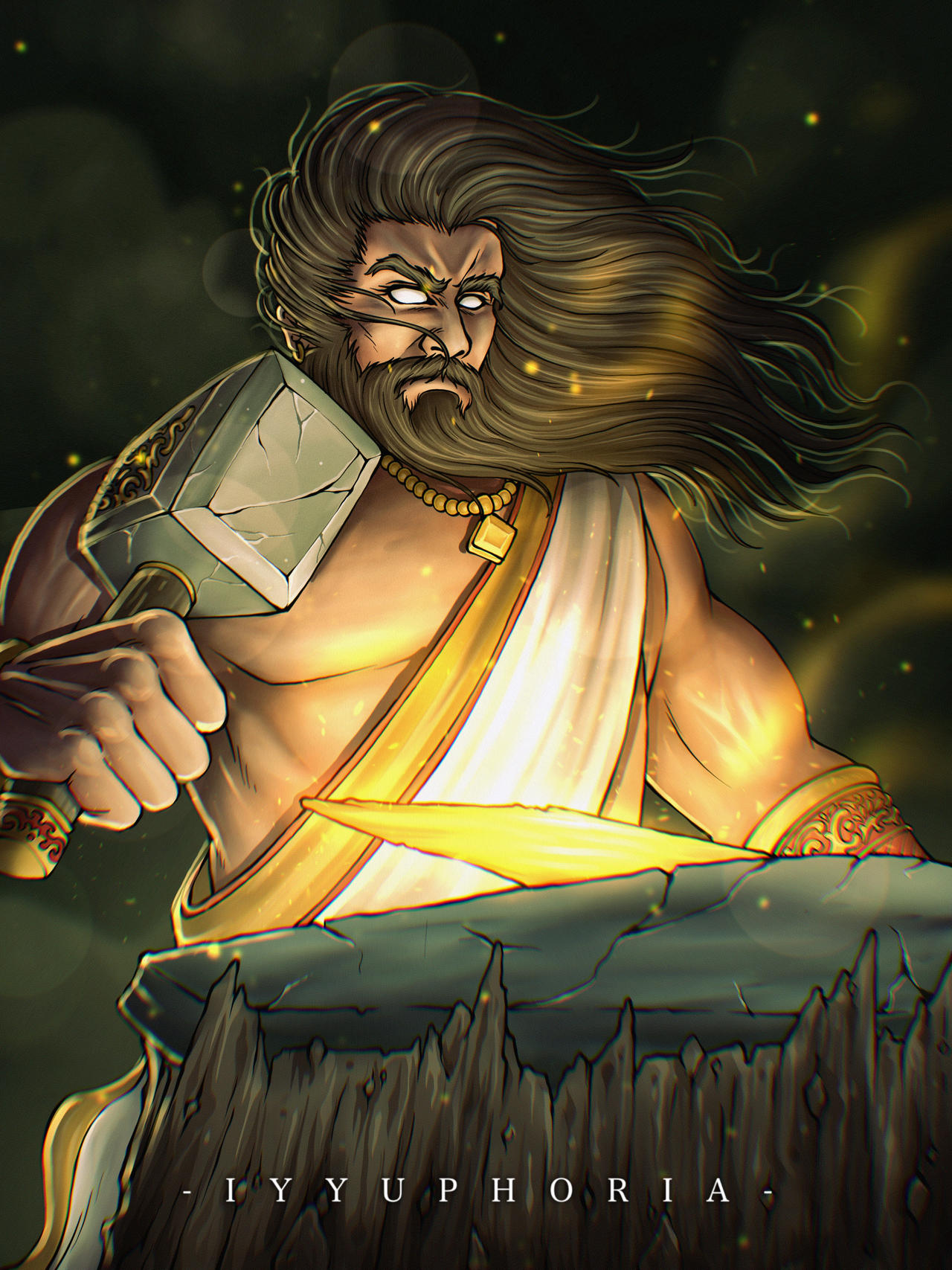
Introduction
As a youth the Greek myths and especially philosophers helped me to understand a growing perception that there’s more to this life than meets the eye. I recall imagining Plato’s archetypes along with Olympus and the powers said to reside there, even when I knew practically nothing about the deep reservoir of Greek myth and philosophy.
Reading through accounts and translations concerning the ancient foundations of Western philosophy and myth, ‘Hephaestus’ was one of those names that struck me as interesting just by its English spelling and pronunciation. A similar fascination happens every now and then with Biblical, Asian, and Indigenous appellations.
I’m no expert on Greek myth or philosophy. One could spend a lifetime learning more and it’s good to look at different translations and secondary sources along with various online resources if one wants to get a taste without actually mastering those ancient languages. After all, could any one scholar definitively learn all the ancient and middle-period languages of the world? Or even one?

Sometimes I think people who learn original languages are not necessarily any more informed than those ordinary people bestowed with what Mr. Spock of Star Trek TOS once called “gifted insight.”¹
I’ve talked about this in regard to Hinduism and Christianity, but I suspect the same applies to Greek myth and philosophy. By way of analogy, a fantastic race car driver isn’t necessarily a great mechanic nor can they singlehandedly build the vehicle they drive. She or he may have a well-rounded knowledge of the car’s parts and inner workings but rising to become an Indy 500 Champ is another matter altogether.
Unlike what some pedants may say, myths and the mythic aspects of the Bible are open to interpretation. And that’s the beauty of it. What works for me might not work for you. And for one person to insist their way is the right way is a sure sign of backward authoritarianism.

Hephaestus was a Greek Olympian god and the son of Zeus and Hera, often equated with the Roman fire god Vulcan.²
Hephaestus was a master blacksmith. In his giant forge at Mount Olympus he fashioned the armor and shield of Achilles, as well as Cupid’s arrows and Jupiter’s thunderbolts. He is the only Greek god depicted as lame and his offspring were usually ugly.
The reasons for Hephaestus’ lameness might be related to the ancient belief that certain gifts were often bestowed on those with disabilities.
To add to his woes, Hephaestus’ consort Aphrodite regularly cheated on him (with gods and men) but Hephaestus himself is also depicted with another consort. From the 2011 Wikipedia entry:
According to most versions, Hephaestus’s consort is Aphrodite, who cheats on him with a number of gods and mortals, including the god Ares. However, in Homer’s Iliad, the consort of Hephaestus is a lesser Aphrodite, Charis “the grace” or Aglaia “the glorious”, the youngest of the Graces, as Hesiod calls her.³
And in our 2022 Wikipedia:
In the Iliad, Hephaestus is presented as divorced from Aphrodite, and now married to the Grace Aglaea.[34] In the Theogony, Aglaea is presented as Hephaestus’ mate with no apparent mention of any marriage to Aphrodite.4

Hephaestus is also interesting as a figure who undergoes a massive fall but returns to grace.
Hera flings Hephaestus from Olympus but he reclaims his place by fashioning her a magical golden throne from which she cannot rise after sitting upon it.
Some stories say that Hera casting Hephaestus out of Olympus caused his lameness, while others say he was rejected because of his infirmity. In any case, Hephaestus was eventually recalled in order to free Hera from being stuck on her throne. His triumphant return to Olympus is depicted in pottery paintings in Attica and Corinth.
¹ A social worker Edith Keeler (Joan Collins) living in the Great Depression speculates during a speech at her Mission House that someday mankind will reach for the stars and travel with spaceships. Kirk and Spock, who have traveled back in time are duly impressed. Spock suggests she has “gifted insight.” https://en.wikipedia.org/wiki/The_City_on_the_Edge_of_Forever
² Hence my quoting Spock in the Introduction isn’t so far off. Star Trek TOS often incorporates elements of history and myth in delightful, creative ways. Some even liken Star Trek to a religion or myth all its own.
³ http://en.wikipedia.org/wiki/Hephaestus (2011 entry)
4 http://en.wikipedia.org/wiki/Hephaestus
Related » Tiresias

Edit – just tweaked this sentence to now read
“By way of analogy, a fantastic race car driver isn’t necessarily a great mechanic nor can they singlehandedly build the vehicle they drive.”
LikeLike